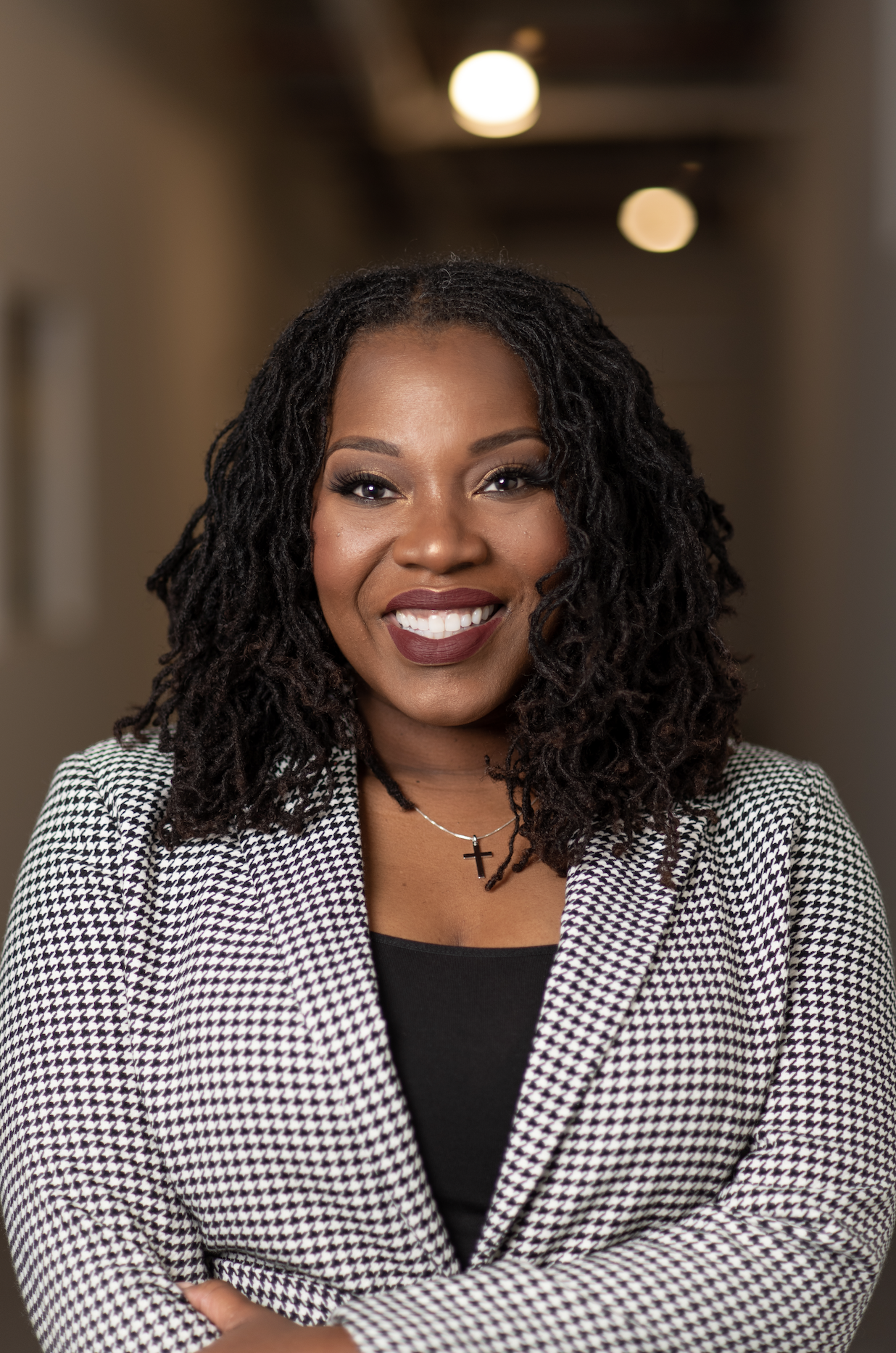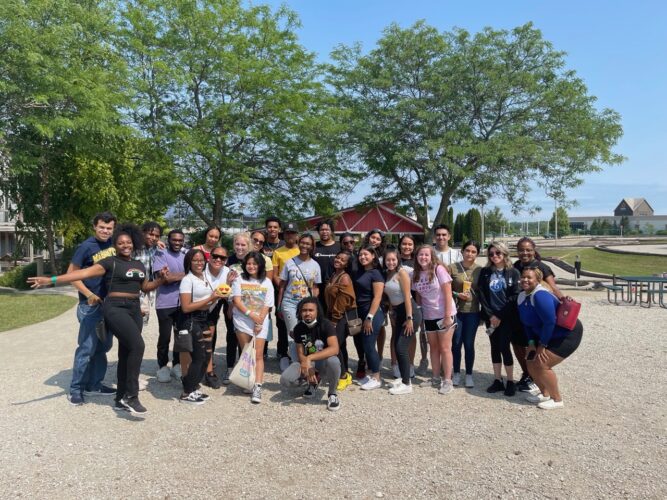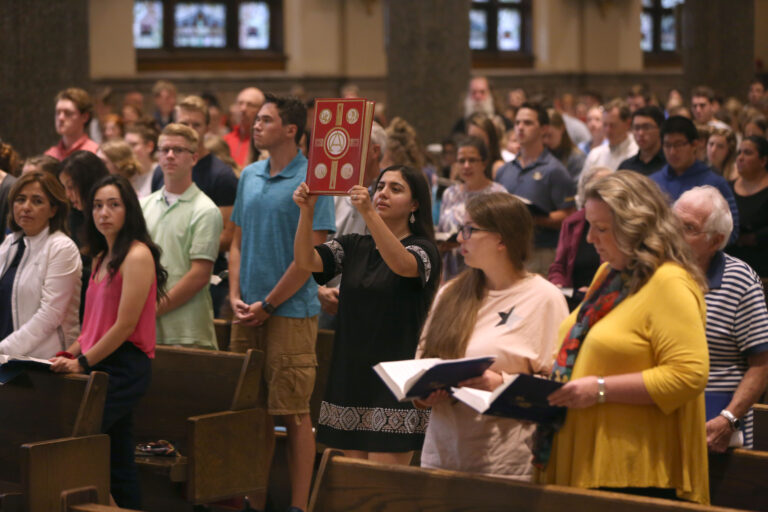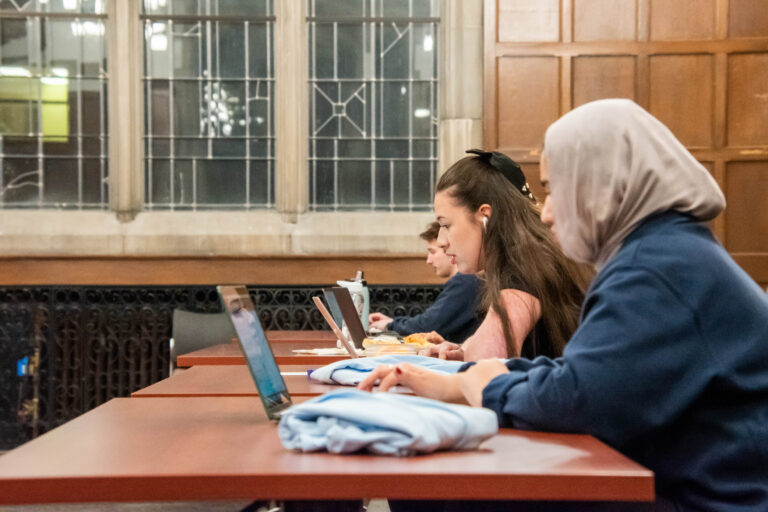
The Educational Opportunity Program (EOP) is a federally funded academic program that motivates and enables low-income and first-generation students at Marquette University whose parents do not have a baccalaureate degree to enter and succeed in higher education.
EOP’s Student Support Services program (EOP-SSS) is an academic department of Marquette that assists first generation college students and students from low-income families through residential experiences for admitted students, one-on-one and group academic-year tutoring, career and personal counseling and individualized financial aid counseling and financial assistance.
JohnRaé Stowers, a first-generation college graduate, is the associate director of EOP-SSS.
Here in a Q&A, she discusses her passion for helping first-generation and underrepresented students, the challenges these students face, tips for students and more.
Where does your passion for helping college students stem from?
As a first-generation college student, I understand from my own personal experience how very challenging it can be to have questions and concerns about the college process and not have readily available family or strong networks to be able to assist.
My passion stems from wanting to ensure future students don’t face the same barriers on their journey to college and beyond as I did. I aim to create programming and leadership that presents an “open door” approach to support and college coaching.
What challenges do underrepresented groups face when it comes to higher education?
We consistently are confronted with the reality that underrepresented groups of students are simply trying to see themselves as a priority in the larger student body of higher education. College can be a culture shock, especially as students attempt to identify faculty and staff they can trust and be vulnerable with about their struggles academically, financially and mentally.
I find that students who cannot find a strong sense of belonging and who are not able to navigate such a new and important territory are easily susceptible to giving up and deciding that graduation is not possible.
What would you say to students who are struggling to go to college? Stay in school? Graduate?
College must be a clear pathway to helping students realize the goal, the dream and the plan they have for their life. Students who struggle with the big decision on whether to go to college have often not been able to wrap their brain around the role that college plays in their bigger dream.
It’s important for students to talk to a trusted advisor about how they plan to achieve their ideal career. The reality is sometimes a four-year institution does not align with that plan. I encourage students to lean into making sure they have considered college as a pathway.
For the student struggling to stay in school, my advice and consistent coaching is to “tap in” to every resource campus provides. It takes a village, and I really believe that campuses offer a wraparound approach of support. However, students must be willing to utilize and exhaust those resources.
Support is vital to students who are on the fence about whether they can make it through, so it becomes imperative to connect them to the right people who can help them stay the course and focus on their WHY. Students must be willing to surround themselves with accountability partners (advisers, faculty and peers) who understand that the end goal is graduation and who can help foster an environment that keeps them working towards that goal.

What does it mean to be college ready? What resources are available for students who do not feel college ready?
First, I believe that all students have the capacity to be college ready, but it indeed requires a commitment to shifting one’s thinking about the approach to studying, being disciplined and being willing to make sacrifices that education and achievement demand.
Post-secondary education is very different from high school, and so the preparedness necessary to attend college requires an understanding that the amount of time dedicated to the work will increase, and that a very clear plan is needed to take advantage of the support available to succeed.
For those students who still are feeling like they are not college ready, I highly recommend pre-college programs that allow for students to have a preview of what the college experience is like. I encourage students to work with a career advisor or school guidance counselor to answer the hard questions about financial aid and college admissions that may be impacting their thoughts about not being ready.
As a first-generation student yourself, what would you say to someone who is daunted by college because they would be the first generation?
Be the first – Just do it! My work with first generation students is about helping them to really see the power of building generational legacy (and wealth) in their family and being the change that they want to see for breaking generational curses. While the weight of that responsibility may feel overwhelming, it really is about setting a new standard that others can follow and continue.


